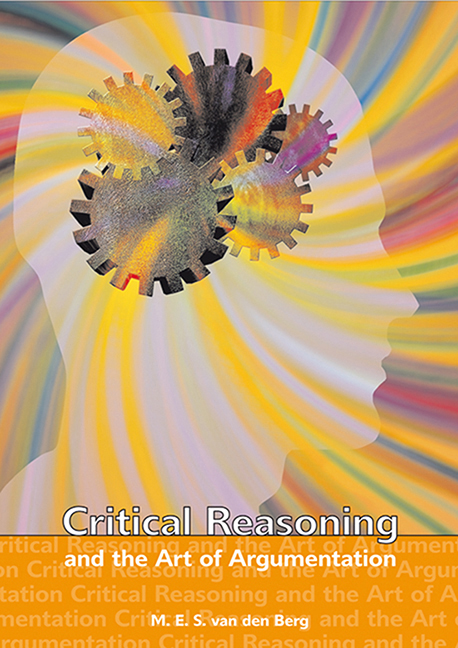Book contents
- Frontmatter
- Contents
- Preface
- CHAPTER 1 What is critical reasoning?
- CHAPTER 2 Obstacles to clear thinking: Preconceived ideas and fallacies
- CHAPTER 3 Working with arguments
- CHAPTER 4 How to analyse arguments
- CHAPTER 5 Definitions, counterexamples and counterarguments
- CHAPTER 6 Evaluating arguments
- CHAPTER 7 Applying your knowledge and skills to the evaluation of arguments
- CHAPTER 8 Constructing arguments and writing argumentative essays
- References
- Glossary
- Index
CHAPTER 6 - Evaluating arguments
Published online by Cambridge University Press: 20 February 2020
- Frontmatter
- Contents
- Preface
- CHAPTER 1 What is critical reasoning?
- CHAPTER 2 Obstacles to clear thinking: Preconceived ideas and fallacies
- CHAPTER 3 Working with arguments
- CHAPTER 4 How to analyse arguments
- CHAPTER 5 Definitions, counterexamples and counterarguments
- CHAPTER 6 Evaluating arguments
- CHAPTER 7 Applying your knowledge and skills to the evaluation of arguments
- CHAPTER 8 Constructing arguments and writing argumentative essays
- References
- Glossary
- Index
Summary
Read not to contradict and confute, nor to believe and take for granted … but to weigh and consider.
Francis BaconIn chapters 3 and 4 we discussed the analysis of arguments. Analysing arguments is, however, only one aspect of critical reasoning. Another important aspect of critical reasoning is evaluating arguments, that is, being able to judge, accurately, whether arguments are valid and sound. Simply put, when we evaluate an argument we decide whether we should be persuaded by it.
Evaluating an argument entails more than just criticising the argument. It involves critically examining the plausibility of the claims that have been made; critically considering assumptions, preconceived ideas and faulty reasoning; weighing possible solutions; clarifying issues; making informed and reasoned decisions; forming one's own opinions on issues and locating issues within a global perspective.
In the previous chapter you learnt how to use techniques for analysing arguments and we pointed out that analysing an argument is the ‘entry point’ to evaluating an argument. This chapter contains specialised information that is crucial in understanding and evaluating arguments. We will explore the following issues: the difference between empirical arguments and value arguments; the difference between deductive and inductive arguments; the difference between validity and soundness; three types of inductive reasoning; and the criteria for distinguishing good arguments from bad ones. You need to be able to do all this in order to evaluate arguments accurately. We will deal with each issue systematically.
Understanding arguments
The evaluation of arguments requires an understanding of the type of argument being evaluated. This is because, before we can critically examine the soundness of claims, we must know what kind of argument we are dealing with. Keep in mind that different evaluative approaches are required, depending on the type of argument we are dealing with. In this chapter I will explain four types of arguments: empirical, value, deductive and inductive arguments. Before we engage in a discussion of the different types of arguments, I will provide you with a short definition and example of each type of argument:
Empirical argument. An empirical argument is an argument in which the premises assert that some empirically determinable facts apply. The correctness or otherwise of the premises of an empirical argument can be verified or falsified by appealing to factual evidence.
- Type
- Chapter
- Information
- Critical Reasoning and the Art of Argumentation , pp. 80 - 103Publisher: University of South AfricaPrint publication year: 2010



